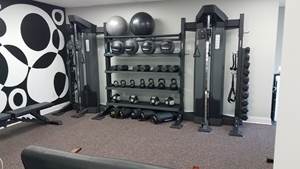Two Hours a Day in ‘The Gemba’ Could Save Your Job
The Gemba is the place we go to reduce cost, improve quality, create satisfied customers and build better teams.
Apprehensively, I admit that for a time, my image of the idyllic business leader was Gordo Gekko, the antagonist in the 1987 drama “Wall Street,” a brilliant, scheming, affluent, high-roller doling out orders to minions from a posh Manhattan office suite. That’s what being CEO is all about.
So it was then when I got my first shot at the CEO position I modeled my behavior somewhat accordingly. I was on the phone with accountants, investors and attorneys, lunching with investment bankers as we chatted about potential acquisitions and holding meetings with my staff on efficiency projects, financial statements and customer satisfaction. I was The Man.
All the while my business was failing. Year over year, performance was taking a dive. Over time, my regular discussions with investors morphed from dreaming about our future success to defending our poor performance.
It got so bad that the board of directors assigned a boss to me, a “group VP” as they called him. The only thing I wanted less than a boss was to be fired. So I acquiesced, and then it started. Once a week my new boss would walk into my office and take me out to the shop floor, peppering me with questions about the status of orders, equipment performance and process control. After several weeks of my uninformed answers and promises to follow up on his questions, he ordered me to spend at least 2 hours a day in “The Gemba.”
Gemba is a Japanese word meaning “the real place.” In business, The Gemba is the place where value is created. In manufacturing, The Gemba is the shop floor.
Not wanting to lose my job, I reluctantly began spending my 2 hours a day in The Gemba. It worked, and before long I was amazed at what I learned about my business. When leaders spend time in The Gemba, we:
- See our people. Shocking what we can learn about our shop from the people who actually do the work.
- Let our people see us and let them know we take a personal interest in them, their work and their role in the business.
- Identify the “Seven Deadly Wastes.” Stand on the shop floor and look for examples of waiting, motion, inventory, rework, overproduction, over-processing and transportation waste. We can’t just eliminate cost by announcing a layoff. Instead, waste is buried in areas such as poor flow, work-in-process inventory and the absence of standard work.
- See equipment first-hand. What are the chronic equipment problems that come up over and over? Is the maintenance team busy performing preventive tasks or putting out fires?
- Improve our housekeeping. When the leader spends time in The Gemba asking questions about tools that are out of place or product that isn’t properly identified, behavior changes quickly, and the shop looks “customer ready” all the time.
- See customer orders up close.
- Get intimate with our performance metrics. A metric (on-time delivery percentage) is just a number until we walk the floor, review dates on travellers, discuss the schedule with production control and ask operators how we can help them process orders more timely.
- Assess our environmental and safety risk. Poorly identified hazardous materials and questionable employee work practices jump out when we view them in person.
- Examine the non-conforming material area. Show me a leader who understands the root cause of rejected product, and I’ll show you one who is well on her way to reducing rework and improving gross profit.
- Play “What’s This?” Walk the floor with the team and ask lots of questions.
Fifteen years ago, spending 2 hours each day in The Gemba saved my job and probably saved my business. Today when a client tells me his business is struggling, the first thing I want to know is how much time he is spending in The Gemba, the place we go to reduce cost, improve quality, create satisfied customers and build better teams. Gordon Gekko, meet Taiichi Ohno.
Related Content
The Value of Aligning Efforts to Promote Manufacturing Careers
Successfully building the next generation of manufacturers requires a team effort between employers, educators and parents. Each of these three groups has a tremendous impact on young people’s career decisions. Without the support of all three, we are unlikely to bridge the skilled labor shortage that threatens the future growth of our industry.
Read MoreApplying a Healthy Approach to Employee Investment
Service Center Metals’ on-site health center offers its employees and their families free same-day health care and, in return, the employer is gaining many benefits including a healthier workforce and attracting potential employees.
Read MoreRecognizing Signs of a Degrading Workplace Culture
Is your machine shop missing key “culture elements?” Here are ways to identify if your organization is heading in the right or wrong direction in terms of establishing a healthy company culture.
Read MoreStrengthening Manufacturing Workplaces Through Active Listening
A good strategy to weather the storms of manufacturing market upheavals and unpredictable factors is to commit to continuous, active employee listening.
Read MoreRead Next
Do You Have Single Points of Failure?
Plans need to be in place before a catastrophic event occurs.
Read MoreEmerging Leaders Nominations Now Open
Here’s your chance to highlight a young person in your manufacturing business who is on the path to be a future leader moving your company forward.
Read More5 Aspects of PMTS I Appreciate
The three-day edition of the 2025 Precision Machining Technology Show kicks off at the start of April. I’ll be there, and here are some reasons why.
Read More















.jpg;maxWidth=300;quality=90)







